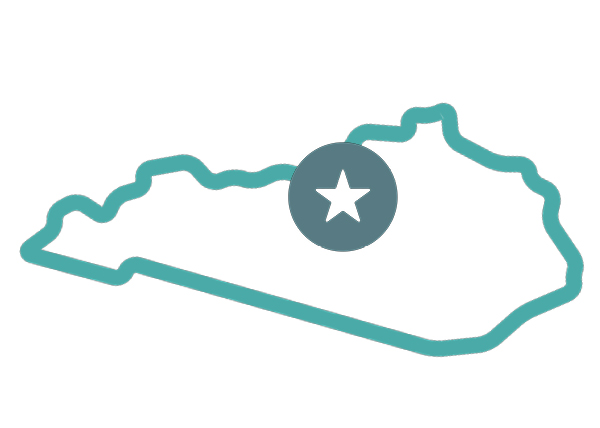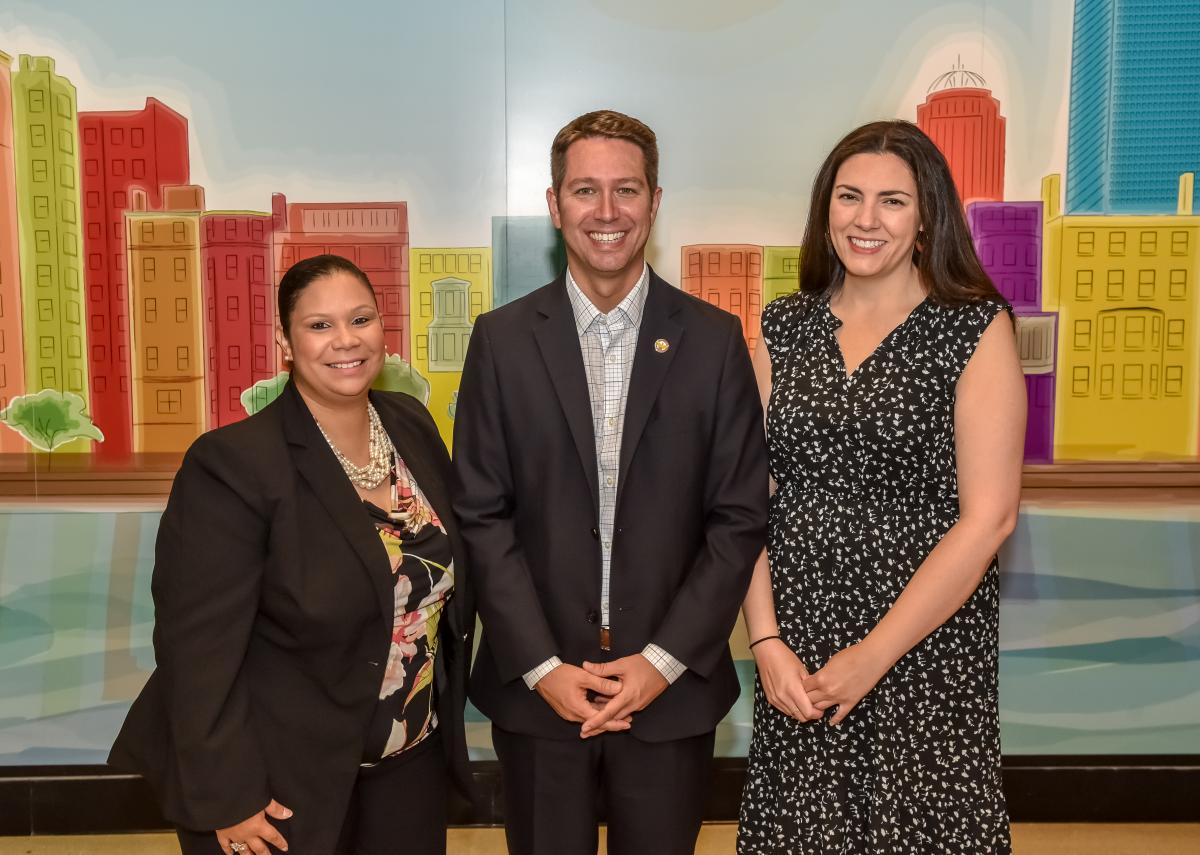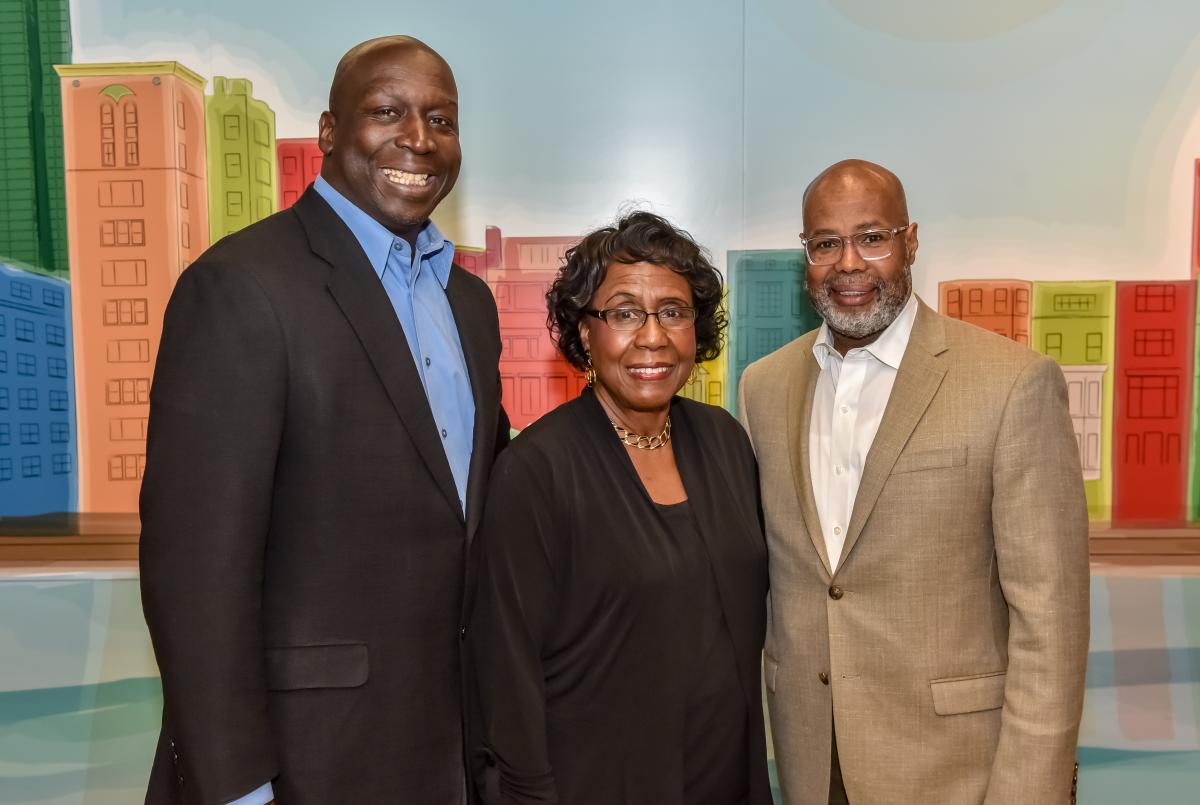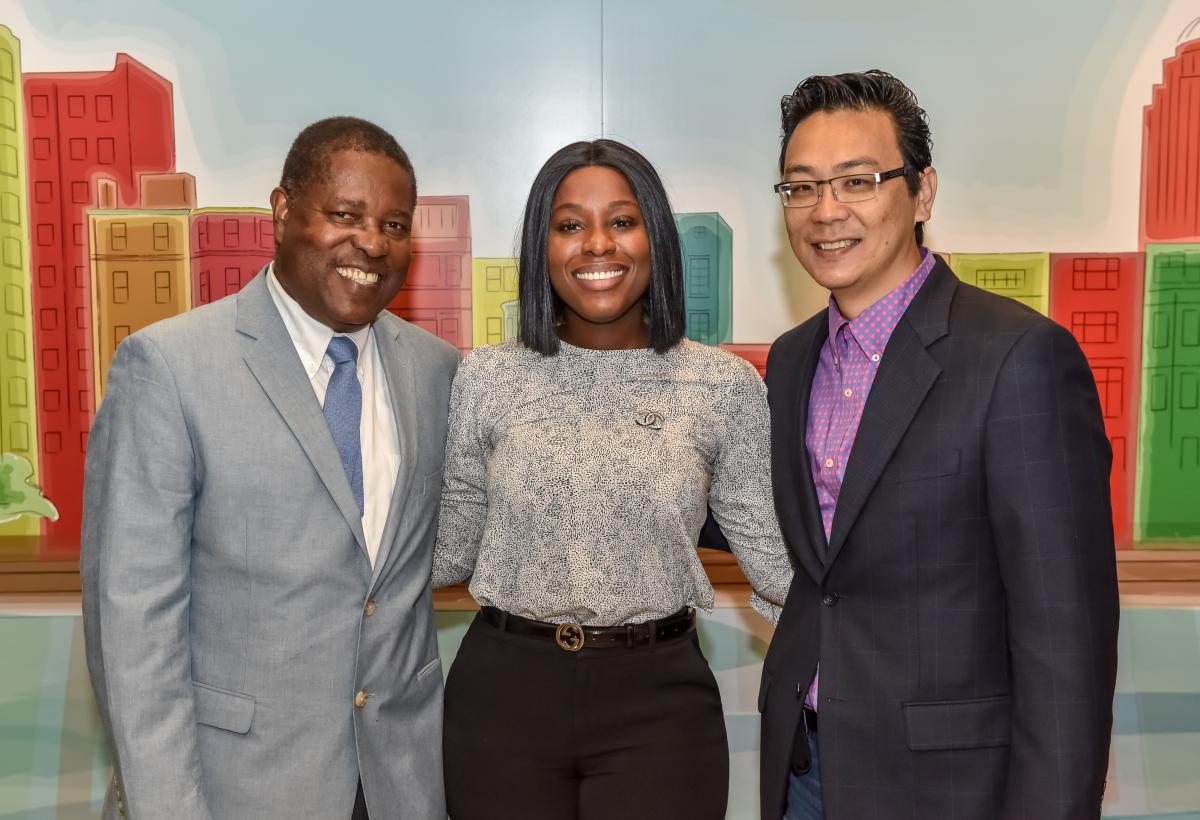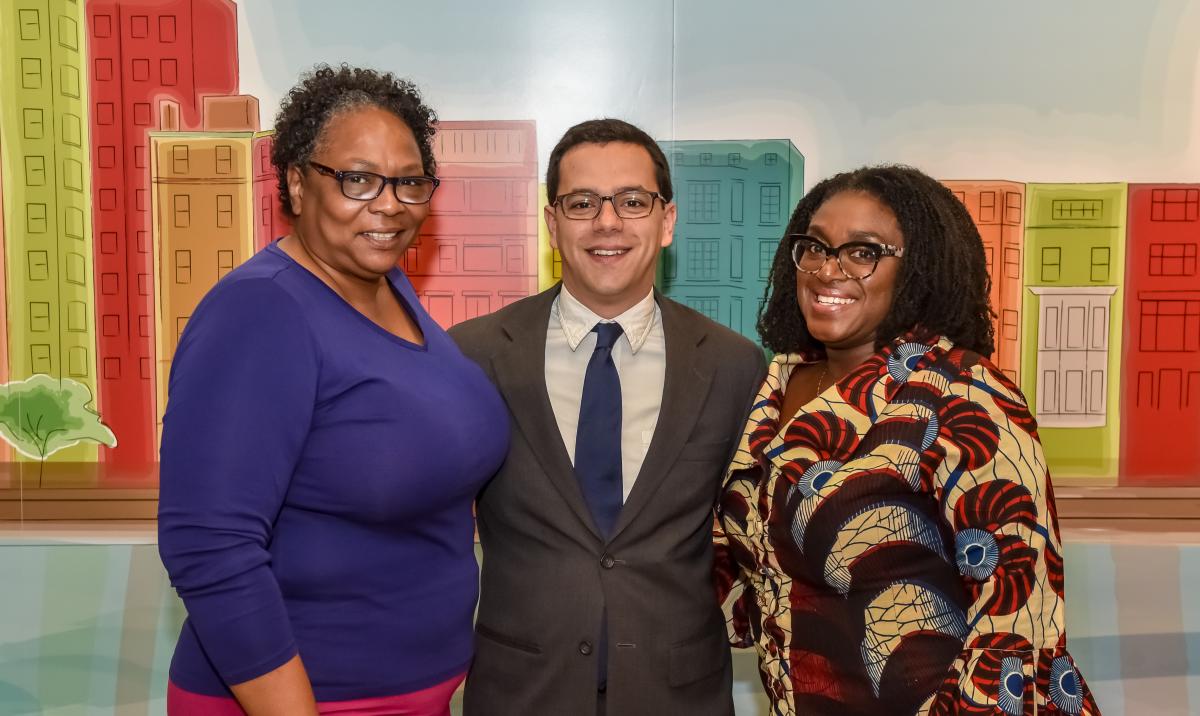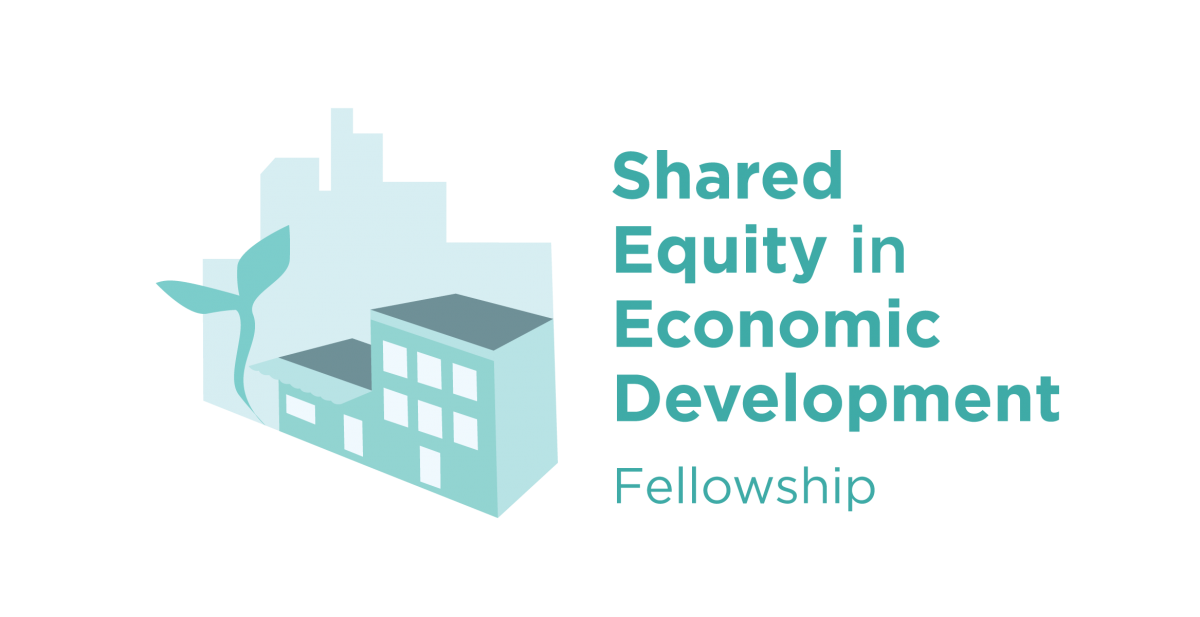 The Shared Equity in Economic Development (SEED) Fellowship is a partnership between the National League of Cities and the Democracy at Work Institute that convenes and equips city leaders with tools, resources, and expertise to build equitable economies using democratic business ownership through a year-long program of leadership development, peer-to-peer learning, and strategy design support.
The Shared Equity in Economic Development (SEED) Fellowship is a partnership between the National League of Cities and the Democracy at Work Institute that convenes and equips city leaders with tools, resources, and expertise to build equitable economies using democratic business ownership through a year-long program of leadership development, peer-to-peer learning, and strategy design support.
Income and wealth inequality, exploitative working conditions and displacement are critical issues faced by communities across the country. These challenges require strategies that create both stable employment and access to opportunities for building assets. The SEED Fellowship convenes and equips city leaders with tools, resources, and expertise to develop strategies that create broad-based business ownership opportunities for low-wage workers, women, immigrants, people locked out of the job market, and communities of color.
For more information contact Zen Trenholm, SEED Program Manager at Zen Trenholm and download our program packet.
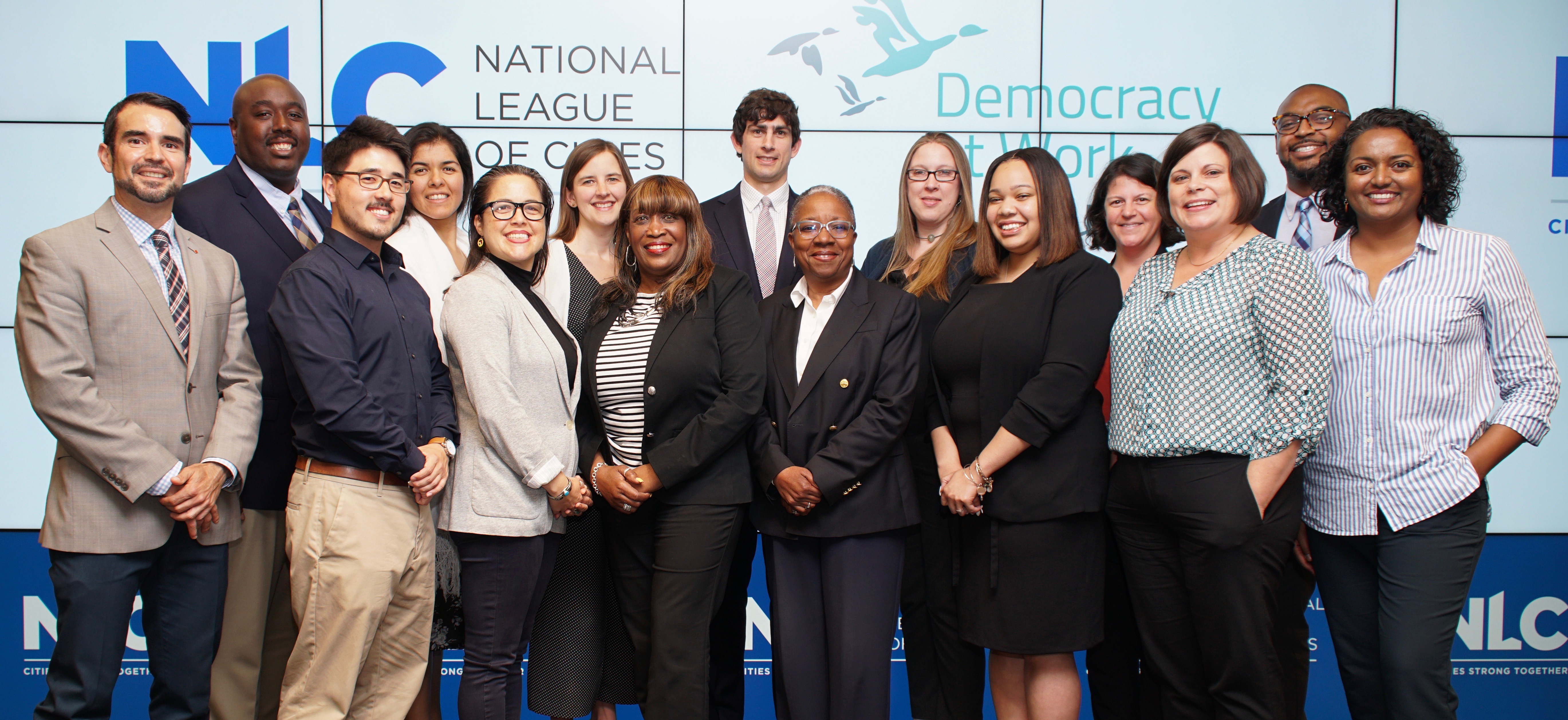
The 2019-2020 SEED Fellowship cohort includes:
| LOUISVILLE, KYKeisha Deonarine, Community Fellow — Executive Director of Park Foundation and Corporate Relations, Park Community Credit Union Verná Goatley, City Fellow — Executive Administrator, Department of Economic Development, Louisville Metro Jordan Turner, City Fellow — Economic Development Coordinator, Economic Development Department, Louisville Forward Theresa Zawacki, Coordinating Fellow — Executive on Loan, Russell: A Place of Promise |
| RICHMOND, VASharon Ebert, City Fellow — Deputy Chief Administrative Officer, Economic and Community Development Portfolio, City of Richmond Nicholas Feucht, Coordinating Fellow — Policy Advisor to Deputy Chief Administrative Officer, City of Richmond Leah Fremouw, Community Fellow — Vice President, Virginia Community Capital Reginald E. Gordon, City Fellow — Deputy Chief Administrative Officer for the Human Services Portfolio, City of Richmond Evette Roots, Ex Officio — Social Enterprise Specialist, Office of Community Wealth Building, City of Richmond |
| SAN FRANCISCO, CADiana Ponce De Leon, Coordinating Fellow — Program Manager, Invest In Neighborhoods Division, Office of Economic and Workforce Development, City of San Francisco Jorge Rivas, City Fellow — Deputy Director, Invest In Neighborhoods Division, Office of Economic and Workforce Development, City of San Francisco Julia Sabory, City Fellow — Cultural Districts Program Manager, Community Development Division, Mayor’s Office of Housing and Community Development, City of San Francisco Donna Sky, Community Fellow — Business Development Manager, Project Equity |
| WASHINGTON, D.C.Ona Balkus, City Fellow — Director of Food Policy, Office of Planning, Government of the District of Columbia Jennifer Bryant, Community Fellow — Program Manager for Community Wealth Building Initiatives, Washington Area Community Investment Fund Jasmine Lilly, City Fellow — Program Analyst, Department of Employment Services, Government of the District of Columbia Katherine Mereand, Coordinating Fellow — Program Manager for Innovation & Equitable Development, Department of Small & Local Business Development, Government of the District of Columbia |
Program Outcomes
The following represents impacts and outcomes achieved in SEED's inaugural cohort year, 2018-19. Inaugural SEED Fellowship Cities included Atlanta, GA; Durham, NC; Miami, FL; and Philadephia, PA.
Resources Moving
- The City of Miami made $150,000 in grants to technical assistance providers to build a pipeline of minority-owned businesses exploring transitions to employee ownership.
- The City of Miami also made loan funds available for financing small business transitions by amending its existing CDBG-funded Economic Development Loan program to allow for financing potential transitions deals.
- The City of Philadelphia has dedicated city staffers to conduct legacy business outreach and data collection on three commercial corridors. The city has also developed a commercial site acquisition program for owners interested in buying their property.
- In progress: Invest Atlanta is exploring an amendment to their existing loan funds to more easily finance business conversion deals.
- In progress: The Atlanta Office of Housing and Community Development has included legacy business/employee ownership work in its CDBG funds request this year. The city is allocating $400,000 for this initiative.
- In progress: The City of Durham is developing an RFP for technical assistance to conduct business outreach and early-stage assistance for businesses exploring selling to their employees. The city has partnered with Duke University to gather and analyze local small business data. They will be building a legacy business registry with help from DAWI.
Policy Moving
- The Director of Economic Development for the City of Durham developed a “Shared Economic Prosperity” plan and presented it to City Council for approval. This plan builds on their existing minority-owned legacy business preservation initiative to include strategies for creating good jobs and expanding business ownership for residents left out of the city’s booming economy.
- City of Miami has amended the guidelines governing its economic development loan fund to explicitly include financing for business transitions to employee ownership (see above).
Capacity Building
- Champions and relationships: The SEED cohort of senior-level city officials has built strong relationships with one another, in some cases sharing data, documents and strategies.
- Data and best practices: Access to business data is uneven and each cohort city’s access varies, but SEED Fellows are gathering entire new datasets that reframe the conversation. In Atlanta, for instance, our SEED fellow, the interim Director of the Office of Housing and Community Development, enlisted the city’s business license department to pull all relevant business data they could find, then GIS mapped that data, parsed it by several factors, and conducted a sophisticated strategic analysis of Black-owned legacy businesses prime for succession planning in three priority neighborhoods. Other cities learned from this example and have found creative ways to gather and analyze their own data. DAWI is supporting this analysis with its own data gathering.
Pipelines Developing
- City of Atlanta has built a roadmap and a list of 200 businesses in six priority neighborhoods to approach about succession. To date they have conducted outreach to longstanding legacy businesses in the Cascade neighborhood identified as potential candidates for succession planning support and potential transition to employee ownership.
- Assistant Director, Department of Community and Economic Development, City of Miami
- City of Philadelphia is assembling a similar list from the on-the-ground work of their commercial corridor managers.
- City of Miami has begun outreach to legacy businesses in three priority neighborhoods, via its funding of three technical assistance partners. DAWI has trained 3 FTE staff from these organizations to meet with business owners and refer candidates to specialized assistance in succession planning and business transition. DAWI will continue to support the ecosystem by supporting their TA development work and including the city as a SEED alumni.
- City of Durham is actively developing baseline data on their small business community to identify a list of candidate businesses to target with outreach and support. They have completed the city’s first ever business survey. The City is developing an RFP for technical assistance. To date, they have spoken with three long-standing legacy businesses.
ACKNOWLEDGMENTS
The SEED Fellowship is made possible with support of:
The SEED Fellowship training program is made possible with support from:
The inaugural Fellowship cohort for the 2018-2019 program includes:
| ATLANTA, GAChristina Cummings, Assistant Director, Economic Development, Department of City Planning Johnita Daniel, Program Manager, Invest Atlanta Katrina DeBerry, Program Officer, The Community Foundation of Greater Atlanta, Invest Atlanta Reese McCranie, Deputy Chief Equity Officer, The Mayor’s Office of Equity, Diversity and Inclusion |
| DURHAM, NCLa-Tasha Best-Gaddy, Chief Strategist, Infinity Bridges, Inc. Chris Dickey, Economic Development Coordinator, Office of Economic Development & Workforce Development Deborah Giles, Director, Office of Equal Opportunity and Equity Assurance Andre Pettigrew, Director, Office of Economic Development & Workforce Development |
| MIAMI, FLSantra Denis, Interim Executive Director, The Miami Workers Center Sandy Lila, Contract Compliance Analyst, Department of Community and Economic Development George Mensah, Director, Department of Community and Economic Development Roberto Tazoe, Assistant Director, Department of Community and Economic Development |
| PHILADELPHIA, PAYvonne Boye, Director, Office of Neighborhood Economic Development, Department of Commerce Miaya Darby, Business Financial Resources Manager, Department of Commerce, City of Philadelphia Frank Iannuzzi, Legislative Director, Councilman At-Large Derek Green Jamila Medley, Executive Director, Philadelphia Area Cooperative Alliance |
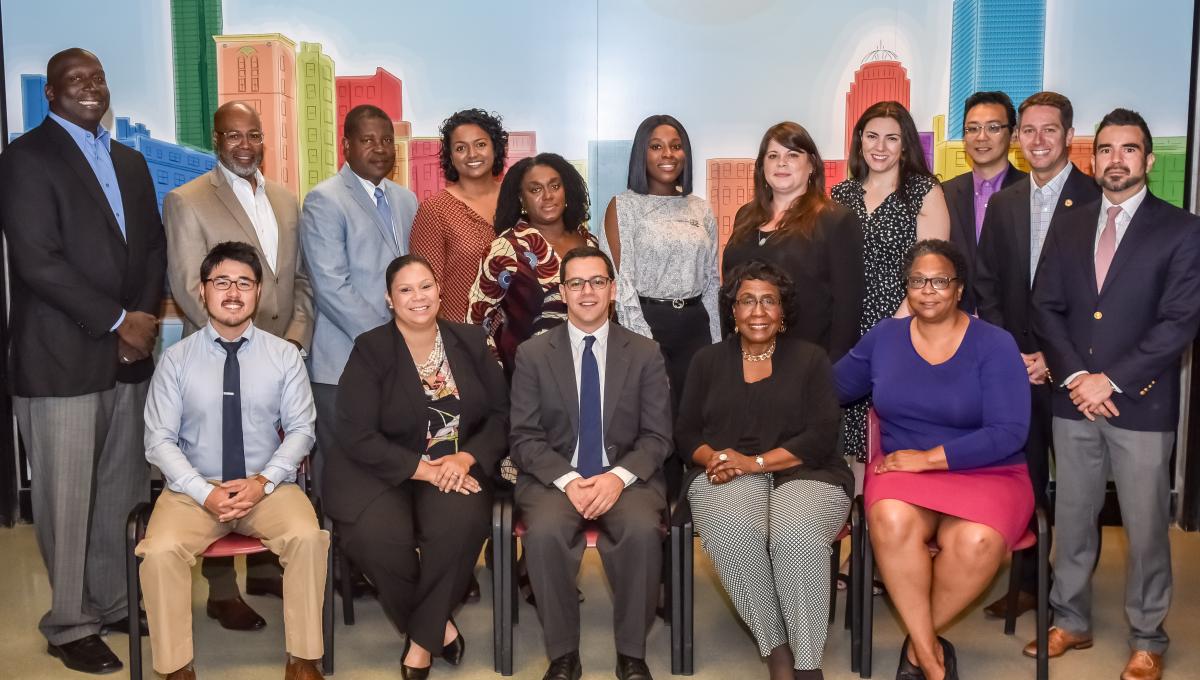
The opening retreat of the fellowship was held in Boston, MA where representatives from each city convened to build a shared understanding of democratic employee ownership and to hear from local city leaders and guest experts on how to build a pathway for employees to own their businesses.
SEED PROGRAM STAFF
Zen Trenholm, Program Manager, Democracy at Work Institute
Shevanthi Daniel-Rabkin, Senior Programs Director, Democracy at Work Institute
Jim Brooks, Director, Housing and Community Development, National League of Cities
Kyle Funk, Program Specialist, National League of Cities
Lauren Lowry, Program Director, Housing and Community Development, National League of Cities

